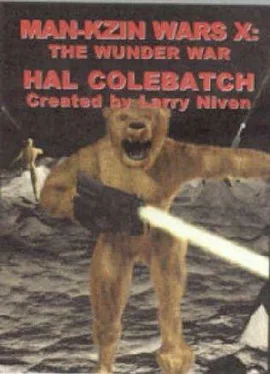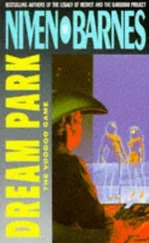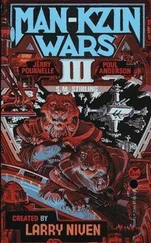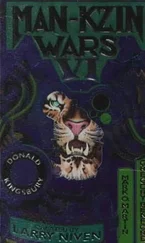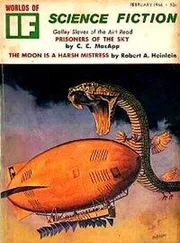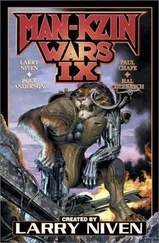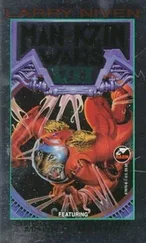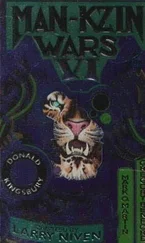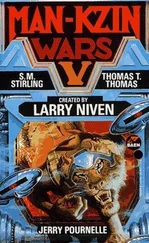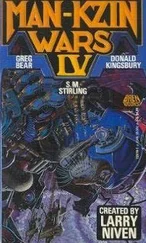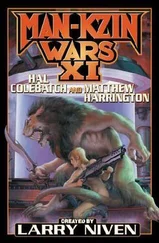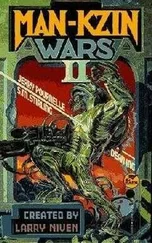Larry Niven - The Wunder War
Здесь есть возможность читать онлайн «Larry Niven - The Wunder War» весь текст электронной книги совершенно бесплатно (целиком полную версию без сокращений). В некоторых случаях можно слушать аудио, скачать через торрент в формате fb2 и присутствует краткое содержание. Жанр: Космическая фантастика, на английском языке. Описание произведения, (предисловие) а так же отзывы посетителей доступны на портале библиотеки ЛибКат.
- Название:The Wunder War
- Автор:
- Жанр:
- Год:неизвестен
- ISBN:нет данных
- Рейтинг книги:5 / 5. Голосов: 1
-
Избранное:Добавить в избранное
- Отзывы:
-
Ваша оценка:
- 100
- 1
- 2
- 3
- 4
- 5
The Wunder War: краткое содержание, описание и аннотация
Предлагаем к чтению аннотацию, описание, краткое содержание или предисловие (зависит от того, что написал сам автор книги «The Wunder War»). Если вы не нашли необходимую информацию о книге — напишите в комментариях, мы постараемся отыскать её.
The Wunder War — читать онлайн бесплатно полную книгу (весь текст) целиком
Ниже представлен текст книги, разбитый по страницам. Система сохранения места последней прочитанной страницы, позволяет с удобством читать онлайн бесплатно книгу «The Wunder War», без необходимости каждый раз заново искать на чём Вы остановились. Поставьте закладку, и сможете в любой момент перейти на страницу, на которой закончили чтение.
Интервал:
Закладка:
"Also, of course, we need them when we have to kill a badly injured animal or one of our own beasts for meat. We're old-fashioned in just about all ways, you know."
"I remember the first time you fed me meat from an animal you killed," I said. "It took me a bit of getting used to. A useful accomplishment for a biologist on field trips, though." We both laughed at the memory of my rush to the bathroom the first time I saw-and then realized-what was on my plate. "Sometimes I thought you were toughening me up deliberately."
"I was." There was something different in his voice for a moment that snagged my attention. Then he resumed his usual slightly pedagogical manner. Perhaps one's old teacher never quite gets beyond teaching, I thought.
"I've said it is part of the churches' duty not to move with the times, though not all the secular brethren agree with me. Oh yes, and we've got some modern strakkakers in case we encounter dangerous creatures like Beam's beasts or tigripards at the sheep…
"Or, between you and me," he continued, "in case we are attacked by humans, who could be much more dangerous. We've got a few bits and pieces in the Treasury and round about that might tempt thieves." The clockwork clock, I thought, must be just about beyond price for some rich collector. But who would know how to maintain such a thing?
"Using strakkakers against thieves sounds pretty draconian!" The strakkaker's blizzard of glass needles would turn a man into an anatomist's instant diagram. Even police only carried them in emergencies.
"We wouldn't, not in the first instance. But if anyone broke in, we might have to defend ourselves. The Papacy has always taken the long view about weapons technology. It was the Bull Romanus Pontifex that gave the charter to the age of European exploration." He loved to lecture, I knew. When I was a child he had spent a lot of time with me after school and guided me towards my career. "It was a pope who tried to ban the crossbow. And it was a pope who tried to ban the sale of the noisy, inefficient stonethrowers called cannon to Africans in 1481. We knew they wouldn't stay at that state. But the ban didn't stick and the Moorish pirates were using them in galleys to dominate the western Mediterranean not much later…" He took a sip of wine. "We're aware our isolation could make us vulnerable."
It's an isolation a lot of people would envy. I know I often do."
The abbot laughed. "I'm well aware of it. We're short of monastic vocations, but there's a long waiting list of people wanting to come on temporary retreats here. A lot of people seem to get something out of a retreat. But they want the tranquility without the discipline-or without the religion at all… without the religion at all," he repeated, and the laugh went out of his voice. We were both silent for a slightly awkward moment. "They'd better make the most of it while it lasts," he added.
"I thought you were planning to be here forever."
"That's what I'd like, but I have to look at the demography. Christianity is dying on this world, as it is on Earth. Life's too easy for most people to feel the need of a religion… a little mild pseudo-Buddhism among some of the urban young, perhaps. But we've talked church history before."
I nodded. On Earth, when people mentioned the Holy Office today, it was generally a slang reference to one of the more secretive departments of ARM, Earth's technological police. Was I right in a vague notion that about the time the last slowboat-load of colonists left Earth, senior church figures had been taking up day jobs? Did it matter? Earth was a long way away. We Masons, who were required only to believe in a Supreme Being, and had a life of our own in our lodges, had an easier job surviving on the whole, but we too had had our lean years.
"I love coming here," I said. "I could never be one for the discipline of the monastic order, but a furlough among all this is pure contentment." He filled our glasses from the sparkling crystal decanter. The wine shone ruby in the firelight. Perhaps my too obvious appreciation of this luxury touched a nerve. "We're not a very disciplined society, are we? Not a very tough one," he said. "Also," he went on, "there's this political trouble. How much do you know about that?"
"Not much. But more than I want to. We've got a whole world-a whole system-thinly settled. Huge tracts of land still for the taking, huge tracts still unexplored from the ground, if it comes to that. Habitable asteroids, Centauri B close by, even the Proxima system to settle if we want to live in bubbles under a red sky. What reason is there for us to fight?"
"The reason that we're human. It's not just Herrenmanner and Prolevolk. Teuties and Tommies fought systematically on Earth once, you know."
"I've heard about it," I said. "I don't know the details."
"Not many do now. Earth is censoring its history in a big way, and though we did bring some records of our own there seems no reason for us to advertise the story of Earth's past…"
"It's not likely to come to fighting again, anyway. Not in this century. We aren't savages."
Not in the old sense, I grant you," he said. "Not wars and armies and so forth." We both laughed at the absurd image. "But there are other forms of violence. Just lately… people have disappeared, you know."
What do you mean?"
"Just what I say. Von Frowein, a senior councilor. He went on a camping holiday a couple of weeks ago and never came back."
"Didn't they search for him?"
"Yes, and they didn't find anything. He had the usual telltale beacon on him, standard equipment for lone campers, and there wasn't a peep out of it-as if it had been deliberately smashed. It gave me a nasty feeling when I learned about that. And there have been others. The police think we are seeing some organized murders-political murders."
"How do you know these things?"
"I'm not just an abbot, you know. I'm also a bishop-a priest in the secular sense. I hear confessions and… other things. My monks can retire from the world. I can't." He got up, pushing the kitten gently onto the padded arm of his chair, and began to pace the room.
"Did you ever read Saki?" he asked, looking at me with a sudden curious expression, "An old Earth writer. A heathen, as far as I can gather, but he had a hand for verses:
"Some lead a life of mild content: Content may fall, as well as pride. The Frog who hugged his lowly ditch Was much disgruntled when it dried.
"He didn't write them as poetry, but as literary artifacts in a short story. Still, they can set one on a certain train of thought." I knew enough of his manner of rhetoric to know that when he spoke again it would be to quote something he had picked for a reason.
"You are not on the road to Hell, You tell me with fanatic glee: Vain boaster, what shall that avail, If Hell is on the road to thee?"
Did he let that last line linger in the air between us for a moment? His glance turned to the blank faces of his computers, and in the soft lighting I seemed to catch something strange there. But it passed. "We-the church, that is-have survived by being ultra-orthodox, archaically conservative," he said musingly. "Heresy comes too easily if you give it a chance, especially when it takes the fastest message four and a half years to travel between us and Rome. And heresy means disintegration. "We know our own history. The church very nearly died of tolerance once. Space travel and the scientism that went with it looked like killing us, but it may have been the saving of us instead. We religious weren't backward in getting into Space, you know. The first religious figure to set foot on a new world was an Episcopal lay preacher named Buzz Aldrin.
"As for us, there's a stained-glass window in our chapel with a likeness of Father George Coyne, the director of the Vatican Observatory, who applied for astronaut training in the 1960s. His Provincial is said to have muttered, 'If I let you become an astronaut, George, every priest will want to.' He had a point there. A priest, Georges Lemaitre, first postulated the Big Bang. No, we've never been hostile to space and space travel, far from it. But perhaps that renewal was a miracle, an unlooked-for one, like almost all real miracles."
Читать дальшеИнтервал:
Закладка:
Похожие книги на «The Wunder War»
Представляем Вашему вниманию похожие книги на «The Wunder War» списком для выбора. Мы отобрали схожую по названию и смыслу литературу в надежде предоставить читателям больше вариантов отыскать новые, интересные, ещё непрочитанные произведения.
Обсуждение, отзывы о книге «The Wunder War» и просто собственные мнения читателей. Оставьте ваши комментарии, напишите, что Вы думаете о произведении, его смысле или главных героях. Укажите что конкретно понравилось, а что нет, и почему Вы так считаете.
